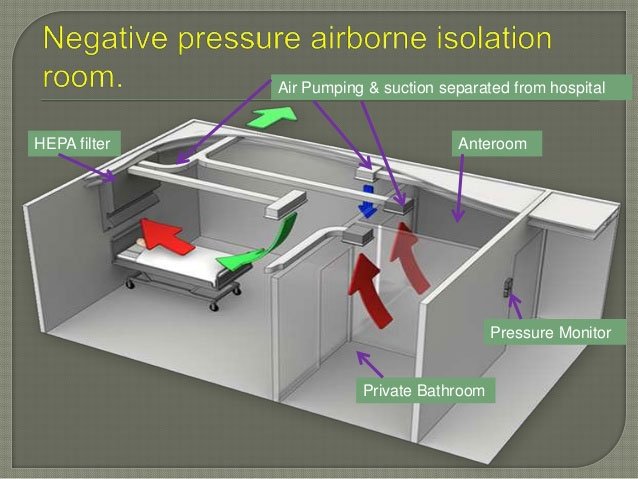

If you travel to an area that has malaria, you are at risk of the infection. Pregnant women are advised to avoid travelling to regions with a risk of malaria.
#DOES MALARIA REQUIRE NEGATIVE PRESSURE ROOM SKIN#
liver failure and jaundice – yellowing of the skin and whites of the eyes.Other complications that can arise as a result of severe malaria include: It can also cause fits (seizures) or coma. This is known as cerebral malaria which can cause your brain to swell, sometimes leading to permanent brain damage. In rare cases, malaria can affect the brain. This can leave you feeling drowsy, weak and faint. The destruction of red blood cells by the malaria parasite can cause severe anaemia.Īnaemia is a condition where the red blood cells are unable to carry enough oxygen to the body's muscles and organs. This means it is important to seek urgent medical help as soon as possible. Severe complications of malaria can occur within hours or days of the first symptoms. Malaria is a serious illness that can be fatal if not diagnosed and treated quickly. The fitfortravel website has more information about the risk of malaria in individual countries. Malaria is found in tropical and subtropical regions of the world. This is the point where symptoms develop and urgent treatment is required.Īlthough it is very rare, malaria can also be spread from a person with the infection through blood transfusions and sharing needles. In the liver, it develops for days to weeks before re-entering the blood. When an infected mosquito bites, the parasite enters the blood and travels to the liver. Malaria can't be spread directly from person to person. When a mosquito bites a person already infected with malaria, it becomes infected and spreads the parasite to the next person it bites.

These are known as 'night-biting' mosquitoes because they most commonly bite between sunset and sunrise. The Plasmodium parasite is spread by mosquitoes. The effects of malaria are usually more severe in: Malaria is a serious illness that can get worse very quickly.

These symptoms can start mild and may be difficult to identify as malaria. Symptoms are similar to those of flu and usually appear 6 to 30 days after the mosquito bite, but it can sometimes take up to a year for symptoms to start. This means that you can get medical attention quickly. It's important to be aware of the symptoms of malaria if you're travelling to areas where there's a high risk of the disease. If it isn't diagnosed and treated quickly, it can be fatal.Ī single mosquito bite is all it takes for someone to become infected. Hospitals / Operating Rooms / Ventilation / Infection Control / Coronavirus / Severe Acute Respiratory Syndrome Coronavirus 2 / COVID-19 / Pandemics.Malaria is a serious tropical disease spread by mosquitoes. This article compares negative and positive pressure rooms and the advantages of a negative pressure environment in optimising clinical care and minimising the exposure of patients and health care professionals to SARS-CoV-2. Although negative pressure rooms are ideal for aerosol-generating procedures, such as intubation and extubation, most operating theatres are generally maintained at a positive pressure when compared with the surrounding areas. The transmission and virulence of this new pathogen have raised concern for how best to protect healthcare professionals while effectively providing care to the infected patient requiring surgery. The emergence of severe acute respiratory syndrome coronavirus 2 (SARS-CoV-2), which causes 2019 novel coronavirus disease (COVID-19), has rapidly developed into a global pandemic and public health emergency.


 0 kommentar(er)
0 kommentar(er)
